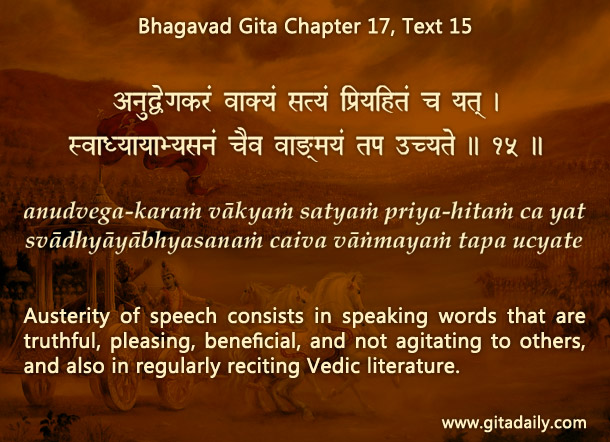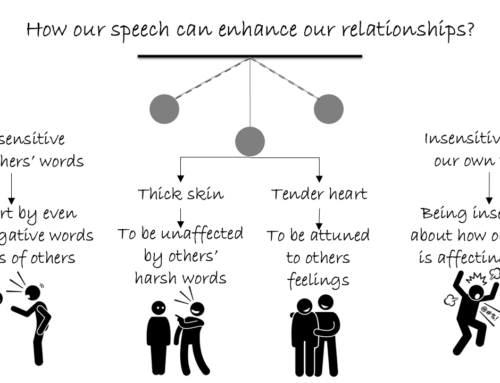When we understand that the Bhagavad-gita contains timeless truths meant for everyone, we may feel impelled to convince those around us about these truths.
Such an intention is good, but its execution needs to be tempered with sensitivity and humility. Often, whenever we have something that others don’t, the ego makes us feel proud. And when the thing we have is not a physical possession but an intellectual revelation that inspires a moral elevation, the ego can make us feel hugely superior to others who are “not as wise and as pure as I am.”
Being driven by the ego, we may feel that we have the right to expose how others’ notions and actions are wrong. When such self-righteous feelings drive our words, we end up using the truth as a tool for beating people on their head. And the more they resist us, the more we feel justified to pound the truth into them. Worse still, we may feel good about pointing out their faults. And that feeling makes it all wrong – wrong not factually, but effectually. The effect turns out to be counterproductive: they get alienated from the truth, and we too get alienated because we become filled with thoughts of our rightness, not God’s greatness. Truth used to bloat our ego is truth abused.
Pertinently, the Bhagavad-gita (17.15) states that austerity of speech means speaking not just truthfully but also in a non-agitating way that benefits people. We need to speak courteously and cautiously, thereby conveying to people that we care for them, as we should when we understand that they are, like us, parts of Krishna. Such sensitive presentation increases the chances that they will open both their heart and head to the truth, paving the way to their enlightenment.
To know more about this verse, please click on the image
Explanation of article:
Podcast:




Thankyou Prji. I am a victim of this….i have done this while preaching…thankyou for this write-up, i pray and hope i never do this again and be more sensitive and humble
Words uttered after deep meditation brings our VACHASIDHDHI in man